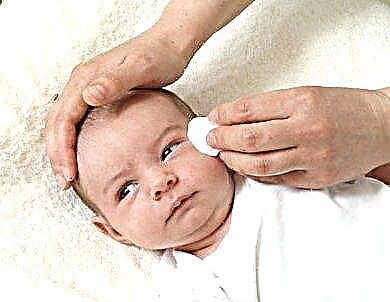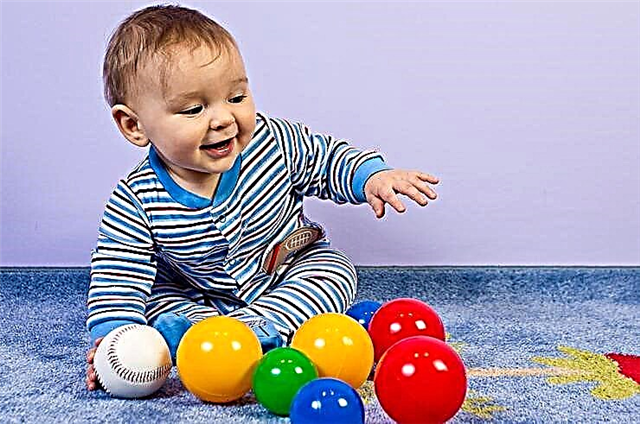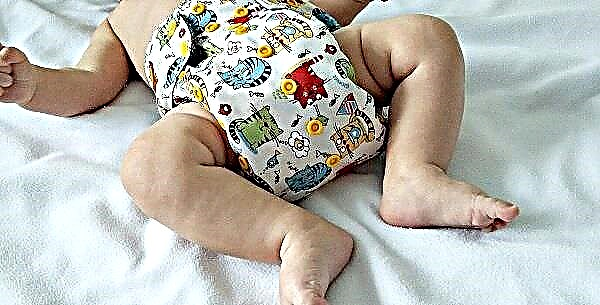The approximate daily routine for a child at 7 months is usually not very strict, since it is at this age that his actively developing body selects for itself the most physiological options for life.The mother of a 7-month-old baby should be ready for an unexpected and rather spontaneous restructuring of the usual daily routine. As a rule, this is due to a decrease in the duration of daytime sleep and more activity of the baby during periods of wakefulness.

Table with approximate daily routine
- 6:00-8:30 The period of awakening, morning meal, washing procedures and hardening air baths.
- 8:30-10:00 Morning sleep.
- 10:00-12:00 Time for the second meal and active wakefulness with the obligatory performance of gymnastics and relaxing massage.
- 12:00-14:00 An educational walk in the fresh air, gradually turning into sleep.
- 14:00-16:00 Regular feeding of the baby and active cognitive leisure, consisting of alternating developmental games and gymnastic exercises.
- 16:00-18:00 Second walk, sleeping in the fresh air.
- 18:00-21:30 The fourth feeding of the baby, the time of communication with family members, the evening bathing procedure.
- 21:30-22:00 Evening meal.
- 22:00-6:00 Night sleep.
A few more additional options with the daily routine (you will already select the best option, taking into account the characteristics of your baby):
The proposed table is just an example of a rational alternation of regime moments (feedings, periods of sleep, walks, exercises and hygiene procedures) and in no way should be taken as an instruction that requires strict adherence to each item.
An indicator of the success of any daily routine is the great health of the baby. If he eats with appetite, plays with pleasure and falls asleep in the allotted hours without any problems, without causing tantrums, then the regime meets all his physiological needs.
About sleep mode
7 months is an age that clearly demonstrates how individual the body of each child is. One seven-month-old baby still needs three rather long (1.5-2 hours) periods of daytime sleep, and the other is already physiologically ready for his daytime rest to become two-phase.
Such children can be given the opportunity to relax in the morning (from 11-00 to 12-30) and evening (from 16-00 to 17-30) hours. It is easy to calculate that the total duration of sleep in some babies is thirteen hours (4.5 during the day and 8.5 at night), while in others it is only eleven. In the latter case, a significant moment comes in the life of a 7-month-old child: the duration of periods of active wakefulness in them begins to prevail over the duration of periods of sleep.
Let's repeat: if the baby is active enough and is in a good mood, the mother should not be alarmed and try to put him to bed in accordance with the previous schedule. Reducing the length of daytime sleep means only one thing: an older child simply needs a new daily routine..
There is another option for organizing sleep, which some 7-month-old crumbs choose for themselves: they prefer to sleep for 2-3 hours while walking in the fresh air, and rest no more than an hour in the morning and evening. Within a month, the hourly intervals of daytime rest will be reduced to forty minutes.
About walks
In the daily routine of a 7-month-old baby, it is imperative that time should be allocated for at least two walks in the fresh air. They are unusually fruitful for both his physical and intellectual development.

The little one, well aware of the existence of a huge world outside the walls of the apartment, is looking forward to the opportunity to get many new impressions. He enjoys meeting people, animals, birds, listens attentively to his mother's comments accompanying these meetings, reacts to them with active hum, lively facial expressions, waving pens.
During a walk with a child, the mother must take care of compliance with safety rules: an actively moving baby that can fall out of the stroller must be securely fastened... Just as carefully, you should protect the delicate skin of the crumbs from exposure to bright sunlight.
About the feeding schedule
Feeding seven-month-old babies continues to be five times, and the intervals between feedings should be at least four hours. Some babies still wake up at night to get some food (the number of such awakenings can range from one to three).
At 7 months, both infants and artificial people have already adapted well to complementary foods: cereals, vegetable and fruit soups and mashed potatoes, baby cottage cheese and all kinds of juices have become full participants in their daily diet... The only difference in their nutrition is that babies continue to receive their mother's milk three times a day, and artificial people continue to receive a bottle of milk formula (at least twice a day).
Most young mothers often ask themselves which dishes are healthier for the child: factory-made or self-made? If the mother is confident in the complete safety of vegetables and fruits that she will use to make soups and mashed potatoes (this is possible only if they are grown in her own garden), then homemade food should be preferred. If there is no such confidence, it is better to give your child juices and purees from purchased jars..
We read on the topic of complementary foods: we introduce complementary foods to children on GW and introduce complementary foods to babies on IV
If mom is going to feed the crumbs with her own porridge, she should grind the cereal to a state of flour, using a blender or coffee grinder. In their absence, it is better to purchase a factory-made semi-finished product intended for baby food.
I would like to pay special attention to the introduction of cottage cheese into the diet of a seven-month-old child. It should be only for children, adapted for an organism with an incompletely formed gastrointestinal tract. Its main difference from the adult product is its very low acidity and a more delicate texture.
All these qualities are possessed by baby curd prepared in a dairy kitchen or a factory specializing in the production of baby products. The closed production method carried out there excludes the ingress of pathogens into the product. It is better to introduce the baby to the curd by introducing it into the fruit puree, starting with one teaspoon and gradually bringing it to three or four.
The best time to get your little one acquainted with new products is during the day. Before bedtime, it is better to give the child a hearty sweet porridge: having eaten well, the baby will sleep much longer and stronger. This moment applies to both infants and artificial.
[sc: rsa]
If the child is hungry a little earlier than prescribed by the established daily routine, the mother may deviate from it a little: 15-20 minutes doesn't solve anything... In the opposite situation, when the baby refuses to eat, you should not force feed him. The reason for the refusal may be due to the fact that:
- the child did not like the taste or smell of the proposed product;
- the baby is frightened by the too persistent behavior of an adult, forcing him to eat;
- the crumb is completely eaten up with breast milk.
How to keep your child busy
A child at 7 months is an active explorer of the surrounding space, trying all objects both to taste and touch. Many babies of this age not only crawl well, but also try to stand on their feet, and especially developed ones are already confidently making their first steps. Such activity requires parents to be very vigilant: knowing that the inquisitive crumb is dragging everything into his mouth, they must remove all small objects (needles, beads, coins, pins) from his path.
For the successful intellectual development of a seven-month-old baby, the following activities will be useful:
- Reading books and looking at bright illustrations (pages in books should be made of thick cardboard).
- Rhymes with repetitive sounds are useful for the development of the baby's speech. Having memorized constantly repeating sound combinations, the baby will begin to reproduce them on its own.
- A 7 month old baby knows and distinguishes between favorite toys. Having laid out 4-5 objects in front of him, you can ask to find the right one among them. For each successful fulfillment of your request, the baby needs to be praised.
- Introducing the baby to the shape and size of objects, it is very useful to use a pyramid. Mom must first collect it by stringing rings in descending order in size, commenting on her actions. After that, you need to give the crumbs the opportunity to disassemble the assembled pyramid, making him an active participant in the gameplay.
- You can buy several dynamic toys for your child: a tumbler, a whirligig or one of the modern toys, the rotation of which creates new pictures. Observing their movement contributes to the development of the logical thinking of the baby.
- To develop the search skills of a crumb, actively crawling around the apartment, you can use the game "Hide and Seek". First, they hide a bright toy in front of him and ask him to find it. When the baby becomes interested in the process, you need to hide the toy again, but stealthily from him, not forgetting to display part of it: this will facilitate the search and please the baby. At the next stage, the mother can hide herself so that the baby can find her by voice.
- Developing fine motor skills of pens, you can give your baby a plastic bucket and ask him to collect scattered, for example, walnuts. An example for the beginning of the collection should be given by the mother. The baby will be happy to join the process.
- The same purpose is served by special beads or spirals with balls, cubes and cones strung on them, which can be purchased in any department of toys.
Teaching the baby new skills, you should create an emotional, joyful environment: only under this condition will the baby be happy to take part in developmental activities. The main task of developing activities with a baby is the desire to teach him to achieve his goal.
We read in detail: about the development of a baby at 7 months and about skills and abilities at 7 months. We also watch the video below:
The importance of massage and the complex of hygiene procedures
Given the extreme activity of young children, who make a lot of vigorous movements every minute, the mother should focus on massage sessions with elements of gymnastic exercises. An experienced nurse will introduce her to the technique of such massage and a set of useful physical exercises during the next routine examination.
The complex of daily hygiene procedures, still consisting of the ritual of morning washing, washing the baby with the next diaper change and evening bathing, should be supplemented by the task of caring for the baby's first teeth... For this purpose, you can purchase a set of special napkins in the form of fingertips soaked in a cleaning solution. Putting the napkin on her finger, the mother carefully wipes the teeth, the surface of the tongue and the baby's mouth after each feeding. In the absence of such napkins, mom can use a piece of bandage.
Evening bathing of crumbs can now be carried out in a large bathtub, for safety, put a special rug under it (like bathing a child). In addition to traditional rubber toys, you can give your baby a toy watering can or a bucket - manipulations with water transfer will not only interest the baby, but also contribute to the development of his intellect and fine motor skills (useful toys for the bath).
Those who still doubt the advisability of subordinating the life of a 7-month-old baby to any regimen should be aware that babies accustomed to a certain cyclicity of feeding, periods of sleep and wakefulness develop much more successfully than their peers who behave quite chaotically.
← daily routine at 6 months daily routine at 8 months →




